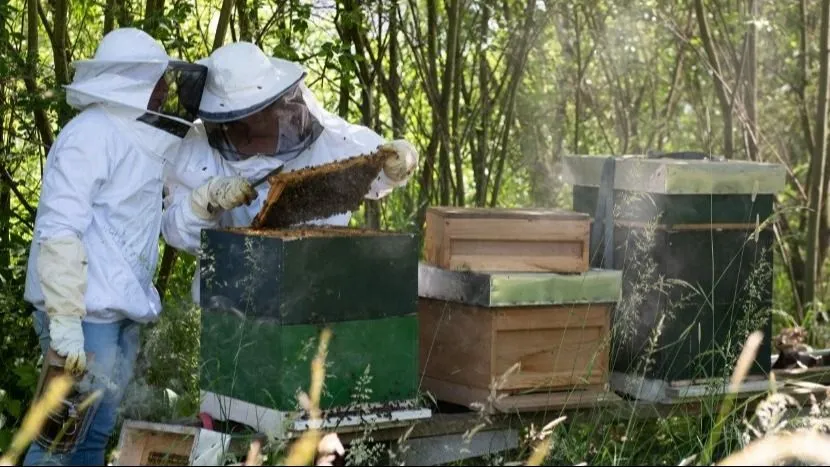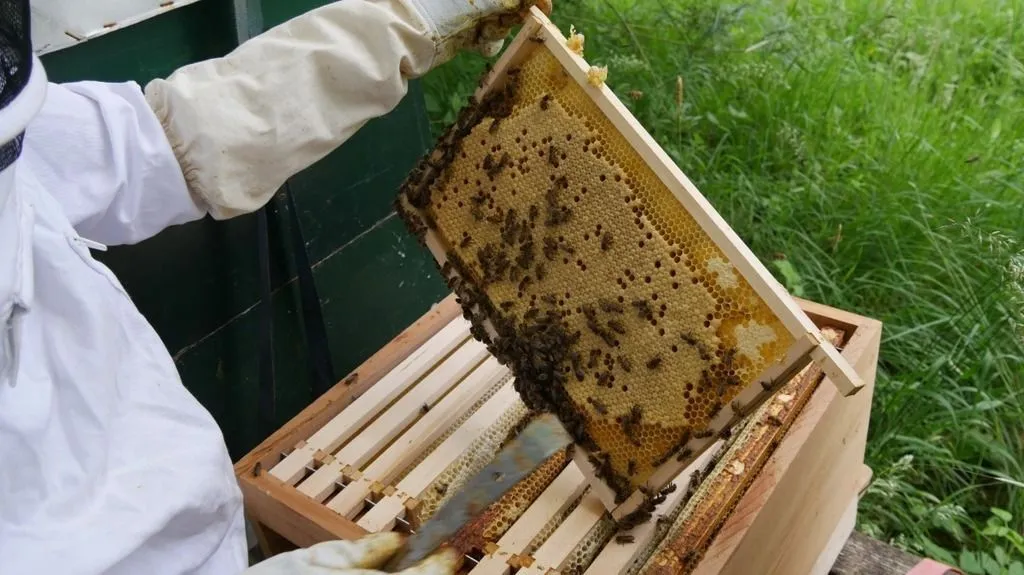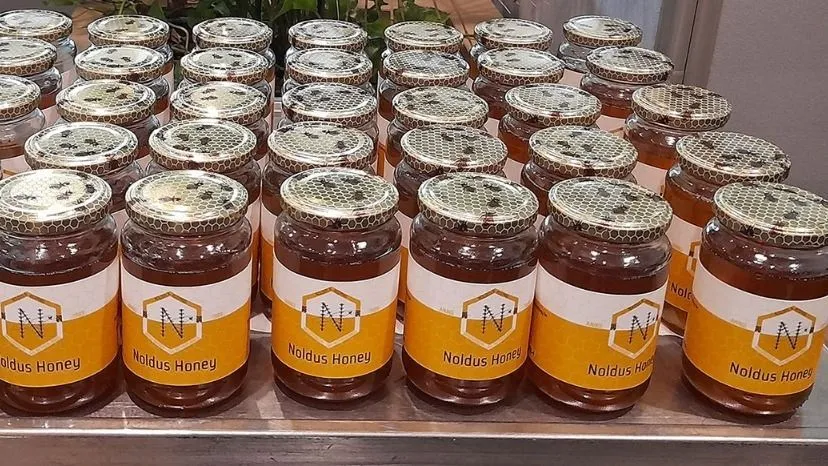September 14, 2022
Monitoring our bees: why and how
In the Noldus’ garden, it is good to be for the bees. There is plenty of space, where they can find a good deal of pollen and where enough nectar-giving flowers and plants grow, including on the green roof of the building. Nearby are lots of trees and the canal (Nieuwe Kanaal) offers them water. A honeybee needs all these ingredients to stay alive: pollen, nectar, and water.

Sustainable beekeeping
Noldus helps the bees by providing them a safe place to stay. Since a couple of years, we have multiple hives with bee colonies that we take care of. The bee committee, consisting of several colleagues, did a basic beekeeping course to learn what needs to be done during the year to allow the bees to function optimally.
At Noldus, we think the survival of the bees is important. As the main pollinators of our crops, such as fruit, we cannot live without these impressive creatures. The most important crops for human consumption are 80% dependent on pollination. Optimal pollination is essential to supply the growing world population with sufficient vitamins and minerals.
That is why we put a lot of effort into maintaining our bee colonies, and proudly mention them on the 'About Noldus' webpage as one of our core values.
The most important job of beekeepers is monitoring
As beekeepers, we regularly check how our bees are doing. Reliable insight into the health status of each bee colony and timely intervention if the health status deteriorates is essential for sustainable beekeeping management and optimal pollination capacity.
During our inspections, we pay attention to all sorts of things. Do they bring in pollen? Are they calm or restless? Do they have enough food? Do we see indications of possible diseases? How do the colonies grow? And when they grow, are their hives big enough, or are there signs that they want to swarm? Do they need more space?
Preventing a bee swarm
In spring, when warmer weather, together with an abundance of nectar and pollen, provide ideal conditions for the colony to increase rapidly, we try to prevent the colonies from swarming. We do this by creating an artificial swarm: we take away the queen bee, put her in a new, empty hive with only part of her colony.
The bees that are left behind immediately realize that the queen bee is gone and start making new ones: larvae that were intended as worker bees now get a diet enriched in Royal Jelly. After 13 days, we beekeepers let the new queen bees come out of their cocoons. Overnight, they decide which one of them becomes the new queen bee of the hive.
Concerns about one of our colonies
At some point, this virgin queen bee goes on a nuptial flight and then starts laying eggs. We checked regularly if that was the case, but every time we went to the hive to see if there were any eggs or perhaps even larvae, we couldn’t find any.
After a while, we got worried. We decided to test whether the hive was queenless by placing a frame with eggs and larvae of another hive into their brood nest. By this, the bees got the chance to make a queen, and that was exactly what they did. They immediately generated a number of emergency queen cells on that frame, so it was obvious: they were queenless and needed a new one.
It is great to see how they immediately anticipated to the help we offered as beekeepers. If we had not taken this action, or had taken it too late, this colony would probably have gone extinct. Luckily, they have grown to such an extent that the colony is now large enough to face the upcoming winter.

Next step: installing BEEP base to monitor their welfare
We enter all our inspections in the BEEP app, an online registration system for beekeepers. With the help of the BEEP app, we register and monitor the stressors that the colonies have to deal with. To extend this form of monitoring, we are going to install a BEEP base: an automatic bee measuring system that can be placed under the hive.
The built-in weight-, temperature-, and sound sensors send all their information every 15 minutes directly to the BEEP app. This way, we always have insight into the status of our bees, without having to disturb the bees by opening in the hive.
Increasing our experience and expertise
By giving lots of attention to our bees, we take responsibility for their well-being. With the help of the resources that support us in that, we constantly gain new insights, learn new things, and understand the life of the honeybee better and better.

References
Bee research – Wageningen University & Research
B-GOOD, a new four-year research program on bee health - Wageningen University &
Research
BEEP: digital tools for beekeepers